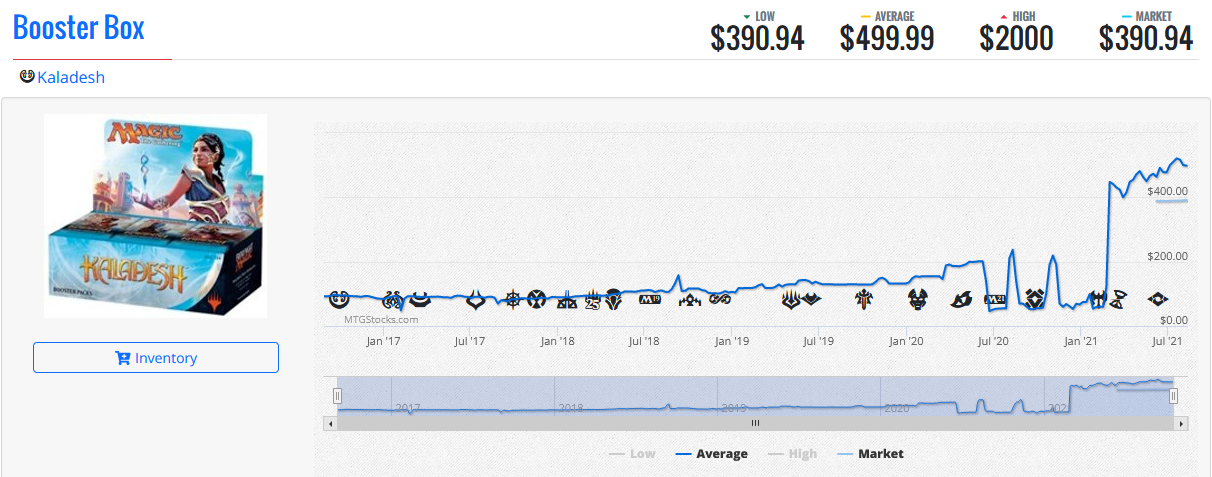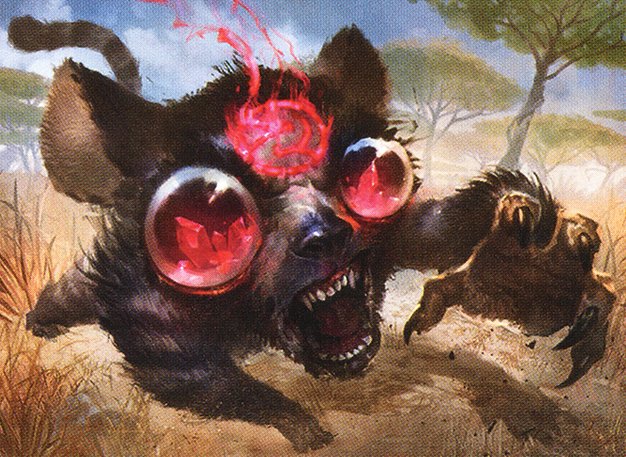Are you a Quiet Speculation member?
If not, now is a perfect time to join up! Our powerful tools, breaking-news analysis, and exclusive Discord channel will make sure you stay up to date and ahead of the curve.
Whether it's to play the game, to make a profit, or something else entirely, people invest in Magic: The Gathering cards for a variety of reasons. The reason you get into investing in Magic can and should steer you in a clear direction of how to spend your money. Let's look at two reasons to invest, and how that shapes where your money goes.
Investing To Play The Game
The most common reason people invest in Magic is to play the game and with good reason. Magic is one of the greatest, if not the greatest, games ever created. It offers a variety of formats and levels of competition to suit any player and any budget. This is true whether you're investing in packs and entry fees to play Limited, buying into a format like Modern, or just want to make tweaks to the Commander deck that brought you into the game.
When investing to play the game, part of the goal is to maximize one's enjoyment. Minimizing our expenses by being smart about how we invest our money is a great way to stretch those Magic dollars into more cards, and lead to further enjoyment. Here are a couple of ways you can make that money go further and build your collection at the same time.
Play More Limited
Not only is Limited a lot of fun, but it is also a great way to quickly help you get better at Magic and add cards to your collection. Limited forces players to work on the fundamentals of Magic, from deckbuilding to mulligans, to the ins and outs of the combat phase. Playing a lot of Limited will improve your skills at Magic for every other format you play. It's also a good bang for your buck, allowing you to add cards to your collection while doing something you want to do anyways: play more Magic!
When a new set comes around, try to attend every prerelease event possible at your Local Game Store (LGS) within your budget, and for the first month after the set comes out, try to draft as frequently as possible. Between the mass opening of sealed product during prereleases and some smart drafting and good playing throughout the month the set is first available, you can add a lot of cards to your collection, and with an average performance can also put some store credit or other prizes in your pocket to use to buy singles. By waiting a month to buy singles, you're also allowing cards to hit peak supply and prices to stabilize.
Playtest Decks/Cards Before You Buy Them
When thinking about building a new deck or adding a new card to an existing deck, don't hesitate to proxy up a couple of copies of whatever you're thinking of purchasing and run a few practice games with friends. You'd be surprised how quickly you can figure out whether a new deck or a new card is going to work for you. Then when you do go to invest in the cards, you already know how the card or deck is going to play and there's no learning curve, or worse, the realization that the card or strategy you spent money on is actually terrible.
Don't fall into the endless cycle of this guy – playtest your ideas before you invest in them and you'll be happier in the long run with every purchase you do make.
Don't Hesitate To Trade Or Sell Cards You're Not Using
We're all guilty of sitting on extra copies of cards, or cards that don't have homes in decks, cubes, or elsewhere. It's part of the collectible aspect of a trading-card game. If something's been sitting in your box or your binder for a while though, it's time to put the T in TCG and Trade (or sell) that unused card away.
This is especially true of Standard cards, which have a short shelf-life. If they've been sitting around your house for six months, put them in your trade binder and move them along. If you are going to hold onto cards in your collection, try to make sure they are relevant for non-rotating formats like Modern, or Commander, so that if they end up sitting around, they don't suddenly rotate and become irrelevant. For more ideas on what to acquire and hold, check out the article Collecting For The Long Term.
Investing To Make A Profit
Up to this point in the article, we've been using the word investment quite loosely. When it comes to Magic finance, we all tend to use the word investment colloquially, to mean virtually any money an individual spends on their Magic cards, regardless of their reason for doing so. When profit and not gameplay is the motivating factor, most of what we call investing in Magic is not investment – rather, it's speculation.
Speculation Vs. Investment
While investment and speculation have overlapping definitions in a number of ways, it's their differences that matter to our understanding, and the key to where we will put our dollars when it comes to Magic: The Gathering.
The Oxford English Dictionary on Google defines investment as "expend[ing] money with the expectation of achieving a profit or material result." Speculation they describe as a type of investment, "...in stocks, property, or other ventures in the hope of gain but with the risk of loss."
The risk of loss is key here when understanding the differences between investment and speculation. For our purposes, when distinguishing between investment and speculation, we are going to look at three factors: the timeframe, the level of risk involved, and our overall outlook or involvement in the market. These factors will then direct us towards where our money should be spent.
Magic Investments
When it comes to Magic investments, I'm thinking of items that are picked up with the intention of being held on a timeframe of at least two to five years, and more at times. This allows ample time for the card or sealed product to ride the waves of speculation that occur, in the case of Reserved List cards, in roughly 18-month cycles.
For non-Reserved List cards, the item should be something unique enough that a reprint in two or three years won't tank its value. The old-border variant fetch lands from Modern Horizons 2, are a possibility, but being subject to reprint at WotC's whim, have a bit more risk involved than what we are looking for. Instead, if in 2017 say, you had bought and put away several sealed booster boxes of Kaladesh at $99 each, you'd be looking at potentially cashing out for five times that amount or more when the five-year mark rolls around in 2022.

This is more in line with our goals on a long-term investment. Even if the cards from Kaladesh itself are reprinted, it's the unique lottery ticket-style Inventions series potentially hiding in Kaladesh boxes that drives their prices, and provides some price-protection from reprints.
From the graph, we can see plenty of bumps in the road along the way, but as we get closer to that five-year mark, the price appears to be stabilizing. If we were heavily involved in the market, buying and selling regularly, we might have sold these into the first major spike that allowed us to double-up our money around May/June 2020. The goal though, with a long-term keep like this, is the ability to check out on the market trends, and only check back in about the five-year point, having ridden out the waves, where we can then make a decision to reinvest or to continue holding.
Magic Speculations
Where investments for Magic are about long-term gains, speculations are all about the quick money. Here, the timeframe is more about following the shifts of the metagame and the market, to get the timing right. High risk, but potentially high reward. A great example to look at for this is the card Archmage's Charm.
If you had purchased Archmage's Charms prior to Counterspell being spoiled for Modern on May 6th, you'd have been able to pick them up for $5 or less. In fact, if you'd picked this up as a spec between September 2019 and the middle of March 2021, you could have snagged them for between $2 and $4 each. With Counterspell and other cards revitalizing blue-based strategies in Modern, Archmage's Charm spiked to just under $20 and has been holding consistently since for around $15 each.
We can only be successful at speculation like this if we are staying constantly tuned to the market, identifying cards that may be undervalued, and picking up those cards before circumstances in the market or the metagame drive up their prices.
Where To Put Our Money
Now that we've defined our parameters, where should we put our money? For investing, we want a long-term prospect, with the best possible chance of a return for minimal risk. The buy-in might be high, but the overall stability of Reserved List cards and Reserved List-era sealed products is where I would park my money if I wasn't looking to actively play my cards or pay attention to the short-term pendulum swings of the market. The up-front cost is higher and may be a barrier to entry for some, but for those with the means, this is the most stable sector of the Magic market for long-term investment goals.
For speculating, I'd have my eyes on cards that could potentially play well with future-Standard or future-Modern once Innistrad: Midnight Hunt and its sequel come into the mix. This means having an eye on cards with graveyard-centric mechanics like Demilich, cards like Wight, which have creature type Zombie to play well with the already-spoiled Champion of the Perished, and every other Werewolf, Vampire, Skeleton, or graveyard-based card that could be relevant with two horror-themed sets added to the mix. We also can't discount the Human tribe from Innistrad, which has proven relevant in Standard and Modern in the past.
While trying to decode the market is one of the things that makes speculation fun and thrilling, the risk of not making a return on our investment is something we have to be comfortable with when playing in the market in this fashion.
| Long-Term | Short Term |
| Moderate risk | High Level of risk |
| Cautious/conservative outlook | Aggressive outlook |
| Graded high-end Reserve List or Reserve List era-sealed |
Modern-era cards (anything not subject to the Reserve List) |
The Price Of Enjoyment
Whether investing long-term or speculating in the short term, having access to years of pricing data through being a QS Insider, can help guide you in making decisions on where to put your money. Check out the link at the bottom of the article for details.
Regardless of the reasons you are putting money into Magic, whether to play the game or as an alternative investment vehicle, I hope that you derive some pleasure from the experience, as enjoyment is ultimately what Magic is all about.
Do you agree with my assessment of the differences between investment and speculation? How would you compare the two as it relates to putting money into Magic? What cards are you speculating on in anticipation of Innistrad: Midnight Hunt and Innistrad: Crimson Vow? Send me an email or post your answer in the comments.




